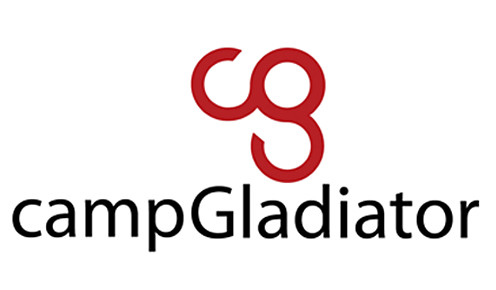Written by: William Parker, CSCS, USAW Level 1
It’s that time of year again. The presents are opened, goodies are eaten and now New Year’s resolutions are a common topic of discussion. Unfortunately, the statistical history of our culture suggests that upwards of 92% of the changes people attempt will result in disappointment. Some reoccurring questions arise from this knowledge: “What can I do to have success with MY resolutions?” “Why do resolutions fail so frequently?” “Should I even try?” Below you will find several strategies to guide you and yours through greater success in 2019 lifestyle alterations.
Should I even try?
ABSOLUTELY! We should ALL aspire to improved health. While we do not need to look like Arnold Schwarzenegger or Jillian Michaels, we CAN make progress towards increased energy, improved daily function, having less pain and experiencing less frequent illness. Dr Rowe, my former professor and head of the Exercise Science Department of East Carolina University, had an email signature saying, “If you do not make time for fitness (health) you will eventually make time for injury (illness).” So unless you desire more pain, discomfort, stress and illness in your life then YES, you should definitely try to improve your physical well being.
Why do resolutions fail so frequently?
There are many reasons for a lack of success in New Year’s Resolutions. The most usual trouble issues include:
- Vague Goals – If you do not really know what you are aiming for then how can you expect to hit the target?
- Too Many Goals – Drastically overloading oneself can actually push the desired goal further away.
- Daunting Goals – If your fastest mile took 10 minutes to run then do not expect yourself to run it in 5 minutes in the short term.
- Solo Goals – Change is hard, especially by your self.
What can I do to have success with MY resolutions?
In an article from the American Psychological Association, psychologist Lynn Bufka, PhD says, “Setting small, attainable goals throughout the year, instead of a singular, overwhelming goal on January 1st can help you reach whatever it is you strive for. Remember, it is not the extent of the change that matters, but rather the act of recognizing that lifestyle change is important and working toward it, one step at a time.” Here are ten practical tips to help you make wise goal setting decisions:
- Fun – Start by selecting a goal that you enjoy or at the minimum dislike the least. Be intentional about making these changes enjoyable.
- Begin – The hardest part is typically getting started. Newton’s First Law states an object at rest stays at rest and an object in motion stay in motion. So get up and get going. Start something now that is…
- Easy – At first avoid things that will be difficult to accomplish. Get some positive momentum with what you would consider an easy to moderate goal before deciding to attempt a difficult one.
- Time – What would be an easy time commitment for you to attain daily/weekly? How much would be moderately difficult? Shoot for the moderate time but fall back on the easy time if necessary.
- Limitations – What limitations do you have? Be sure to consider your current/past injuries, equipment, location, time, clothing, situation (solo/community), etc.
- Why – Think deeply about why YOU want to make changes. The more detail you provide the more motivation you will have. Then making sacrifices for that goal will become easier and easier.
- Persevere – Expect challenges, both seen and unforeseen. “Speed bumps” will happen. Get back up and headed in a positive direction. Support systems, like workout partners or friends who keep you accountable, greatly increase the chances of adhered change.
- Resilience – Resist the allure of your old habits. Change does not “just” happen. You have to be intentional about adjusting to change.
- List – Write down the short term (daily, weekly, monthly) and long term (3 month, 6 month, 12 month) goals that you have for yourself. Then chose 1 or 2 at a time to focus on until they are an easy normal part of your lifestyle.
- Overload – Avoid doing too much too soon. Be wary of over committing. Constantly remind yourself to emphasize long-term lifestyle change.
When considering the above and beginning to write out your short and long term goals, use the SMARTER goal setting acronym. Make sure each goal is…
- S – Specific
- M – Measureable
- A – Attainable
- R – Relevant
- T – Timely
- E – Evaluate
- R – Repeat
If you are interested in investing in yourself in 2018 and would like some professional assistance, contact us at either the Raleigh/Cary Performance Center or CORE Adult Exercise program. Remember to pick 1 or 2 easy fun goals & get started!
***Make sure to check with your doctor and adhere to any guidelines they give you regarding your physical activity.***
About Coach Will Parker, CSCS, USAW Level 1:
Will Parker is a Certified Strength & Conditioning Specialist at the Raleigh Orthopaedic Performance Center. He earned his Bachelor’s degree in Exercise & Sport Science from East Carolina University in 2006. After graduating he worked for a year with NC State University as an Assistant Strength & Conditioning Coach helping with Football, Basketball, Baseball, Soccer, Softball, Wrestling, Track & Field, Golf, Tennis, Gymnastics, and Swimming & Diving. Coach Will then joined Raleigh Orthopaedic Clinic in December of 2006 where he remains today, more than 11 years later. He enjoys various sports, board games, movies and being an active leader in his church Kings Park Raleigh.









